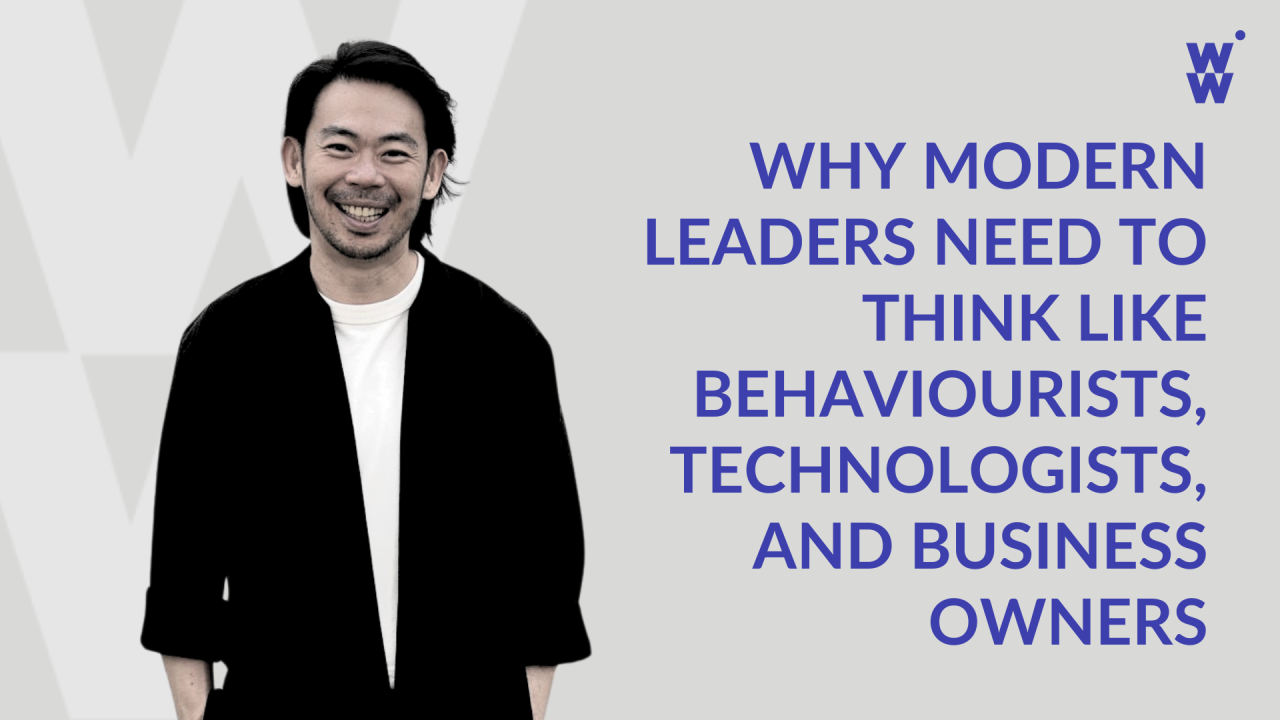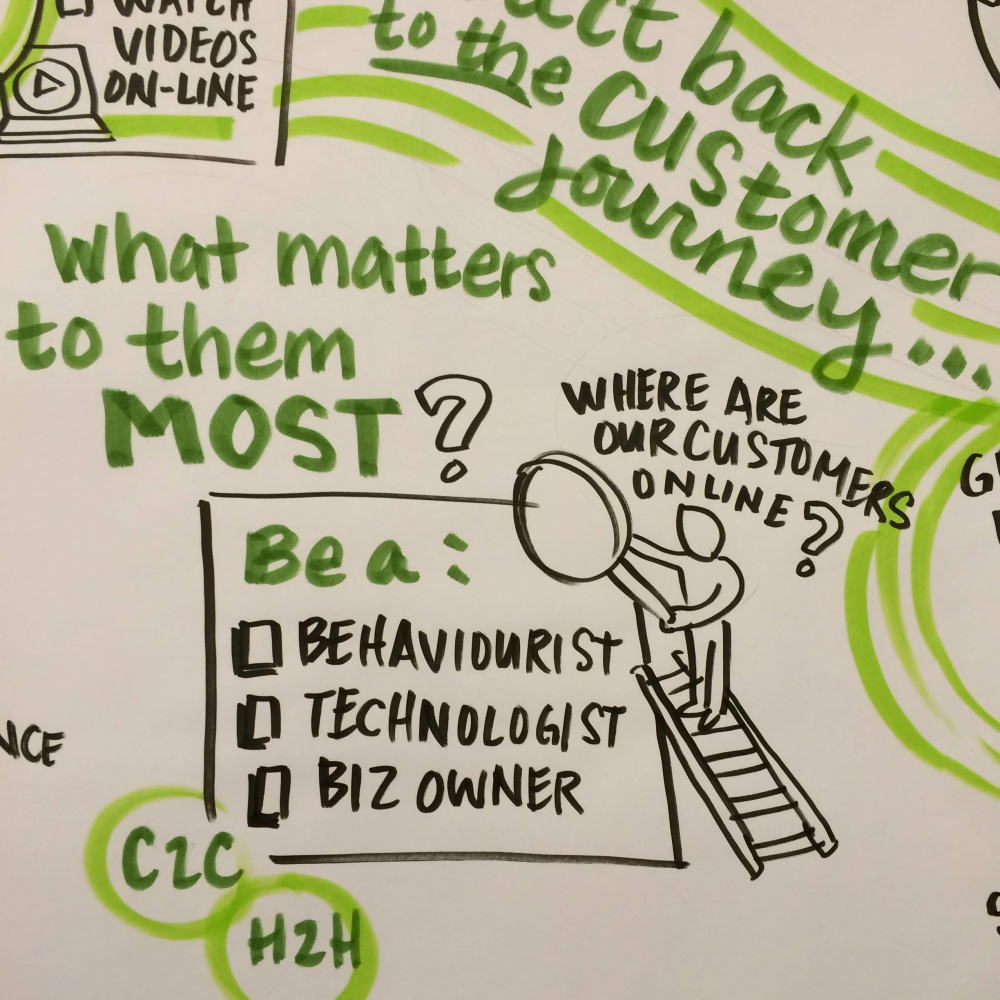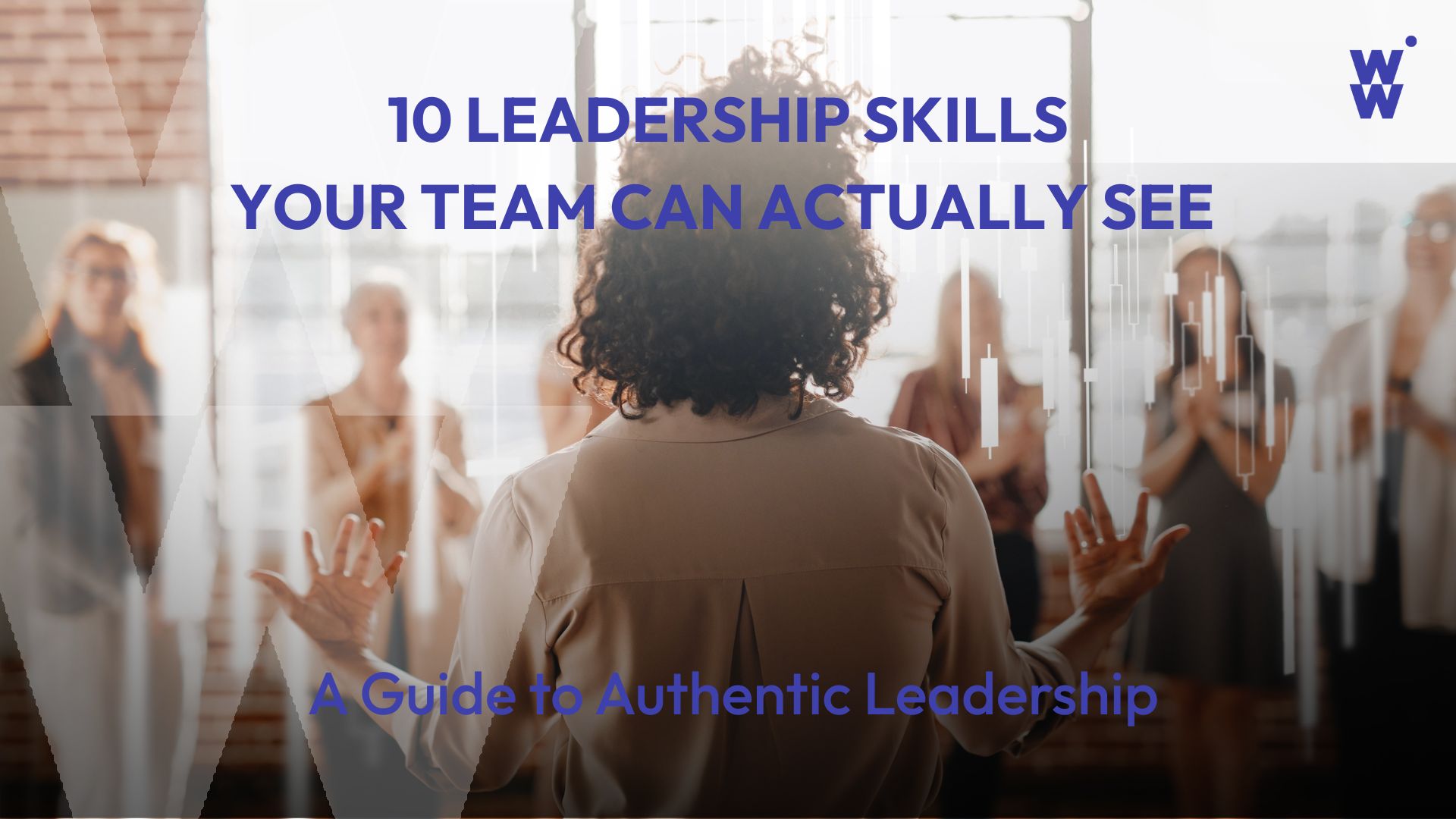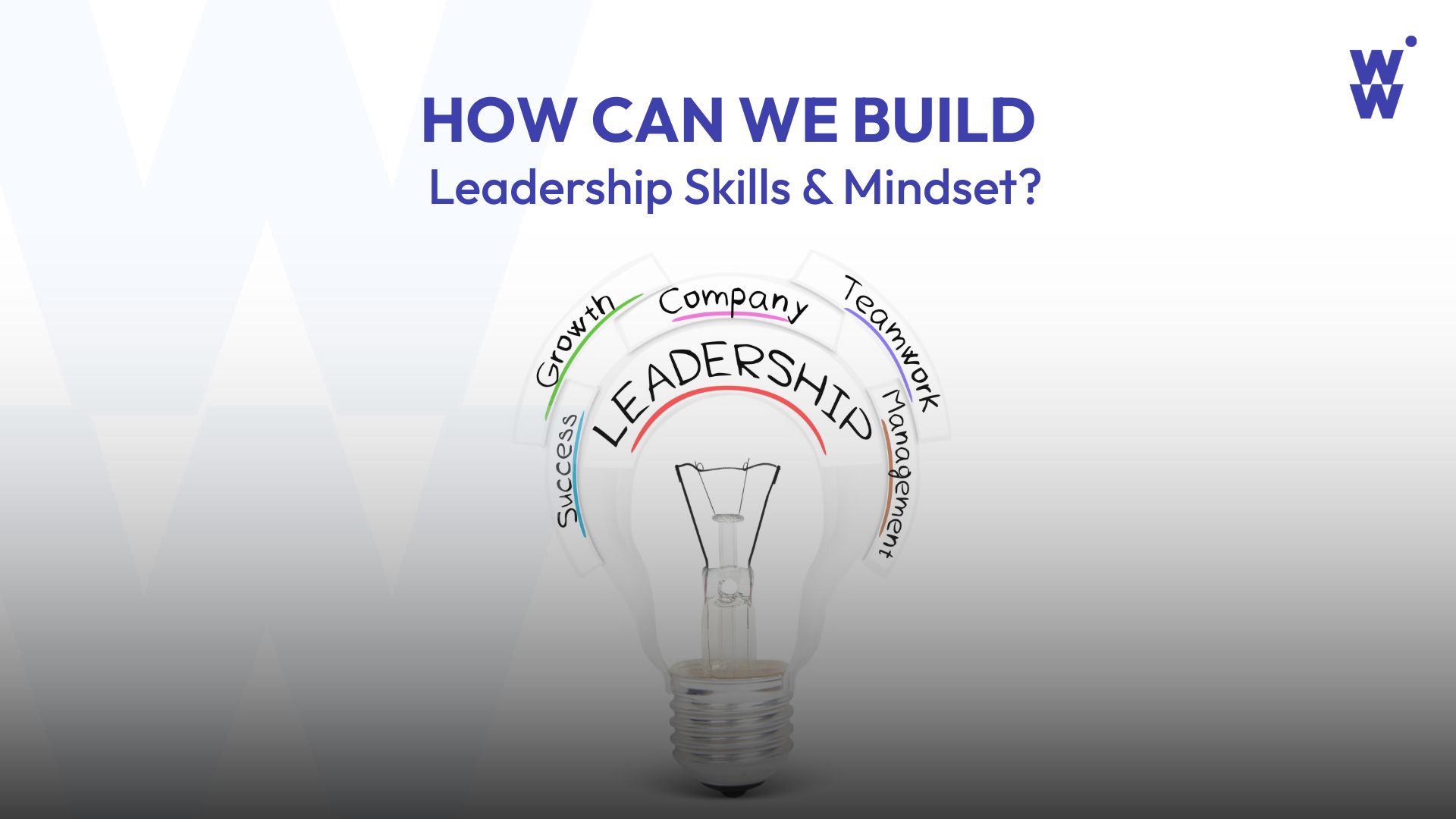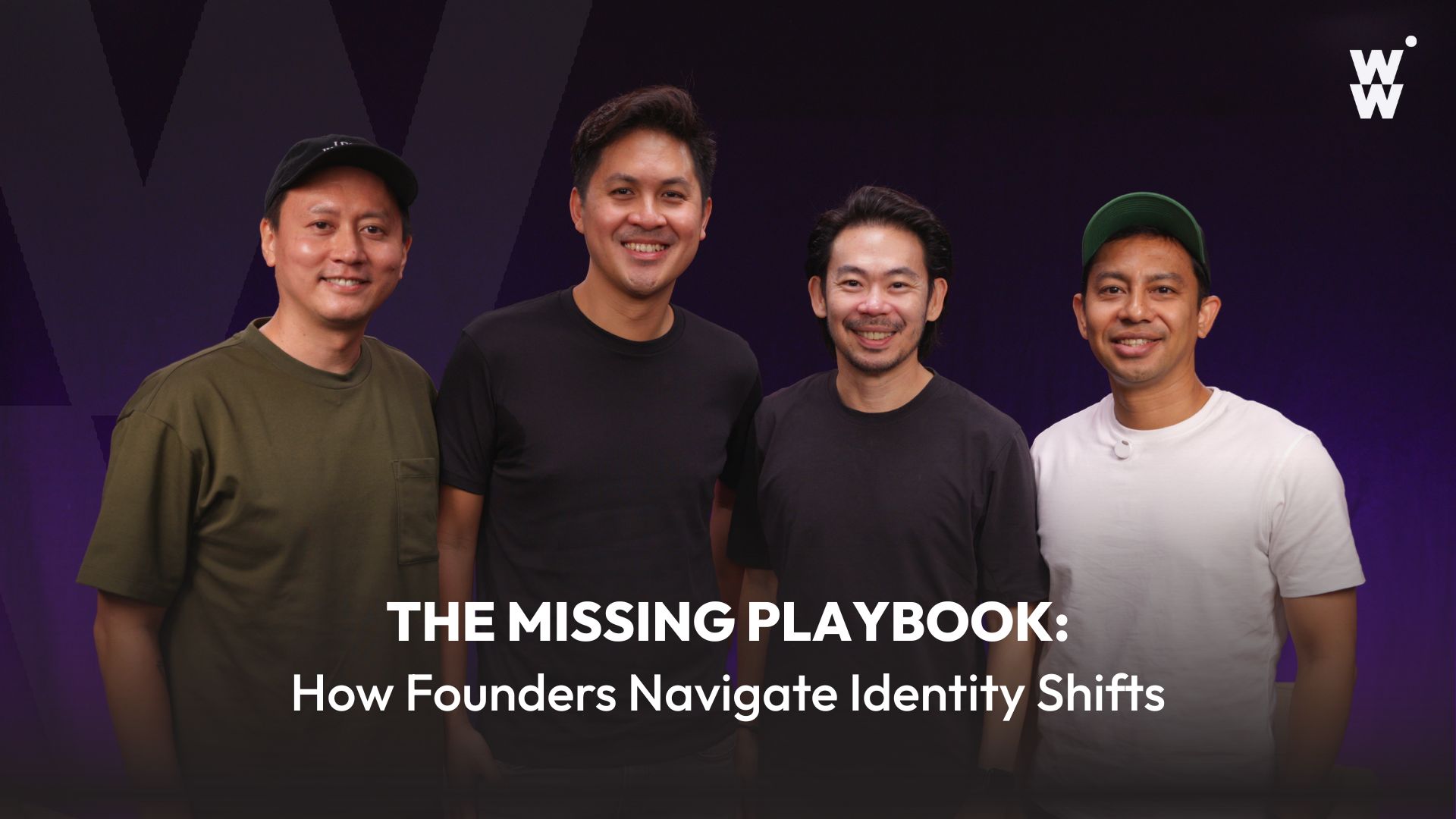
When Derek stepped down from ViddSee after nearly a decade, people kept asking: "What's next?" He couldn't answer. Not because he lacked ideas, but because he didn't know who he was without the company that had consumed his identity.
"It didn't even feel like just a work identity," Derek told the podcast hosts. "It was a very personal identity that became work. And to be stripped away from that, I was like, Who am I really?"
The Identity Fusion Problem
Derek's story reveals why typical career transition advice fails founders. This wasn't losing a job—it was losing an extension of himself. For years, people had said, "Derek is ViddSee, ViddSee is Derek."
When well-meaning friends advised, "your work is not your identity," Derek found it impossible to accept. "It wasn't work," he explains. "It was my existence there. What I built."
This fusion between founder and company creates unique grief when separation occurs. Unlike other professionals, founders aren't just leaving a role; they're severing from their vision, values, and years of emotional investment.
What Founders Actually Grieve
Derek's experience illuminates the multiple layers of loss:
Loss of Purpose: VidSee represented Derek's mission to empower Asian storytellers. Losing that vehicle meant losing his primary source of meaning.
Loss of Identity: Being known as "ViddSee's founder" shaped how Derek saw himself and how others saw him.
Loss of Structure: The consuming daily rhythm of running a company suddenly vanished, leaving him unmoored.
Loss of Community: Teams, investors, and industry peers formed his primary social network.
Loss of Future Vision: His imagined trajectory—for himself and the company—required complete rebuilding.
Why "Getting Over It" Doesn't Work
Derek initially gave himself a deadline to sort everything out by year's end. When December arrived without resolution, his frustration compounded the sense of being lost.
The breakthrough came when he stopped managing his grief and started feeling it fully. "If you're sad, feel sad. If you're angry, feel angry," he reflects. "Why are we suppressing what we're supposed to feel?"
This meant waking up at 3 AM with anxiety, writing in caps lock when frustrated, and sitting with the full weight of loss. Rather than pathologising these responses, Derek began understanding them as necessary.
The Turning Point
Derek's perspective shifted after watching a simple YouTube video with the message "everything ends." This basic truth helped him contextualise his experience within natural cycles rather than personal failure.
"As much as the founder, building and building and building, you cannot have things end," he explains. "You got stakeholders, you got investors—you can't have things end. So I was never in that psyche or that language."
Rebuilding, Not Rejecting
Friends suggested Derek "throw away" his past and start fresh, but the healthier path involved integration. "There were people around me that were like, no, don't throw away, you rebuild. You stack on top."
This reframe helped Derek see VidSee as one vehicle for deeper values that predated the company and would continue beyond it. His current venture, BE (The Be Company), represents evolution rather than departure—still empowering creators but with expanded scope.
What Actually Helps
Derek's journey reveals what founders need during transition:
Permission to Feel: Explicit support to sit with difficult emotions without timeline pressure.
Protected Time: Derek describes his "adult gap year" as essential for reflection without productivity demands.
Story Sharing: Talking with strangers about his experience helped Derek realise he wasn't alone.
Community: Connecting with others navigating similar transitions provided validation and practical advice.
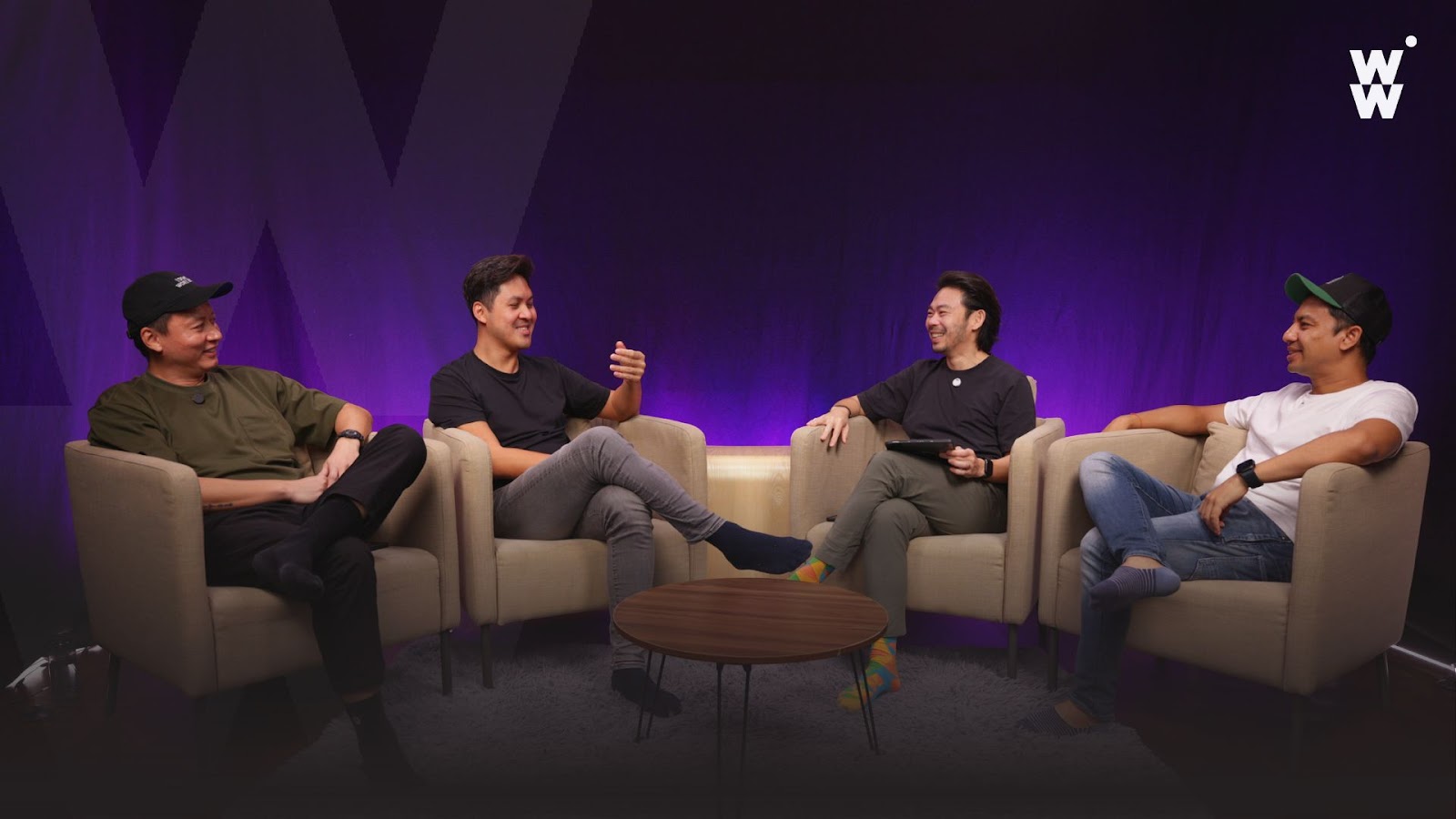
The Hidden Gift
Derek's grief forced examination of patterns he'd ignored during company building—overwork, neglected relationships, leadership blind spots. "If I were to work on myself better, then maybe it could affect how I show up in relationships with co-founders," he reflects.
This self-examination became the foundation for more sustainable approaches in his next venture.
Redefining Success
Rather than measuring how quickly founders bounce back, we might consider:
- Depth of self-understanding
- Quality of rebuilt relationships
- Development of sustainable practices
- Integration of learning into future work
By these measures, Derek's year-long process wasn't delayed—it was a thorough preparation for better leadership.
Listen to the full conversation on Offscript, part of the Wild & Wise Podcast, for more insights on Derek's journey from ViddSee founder to his new venture, BE.
Be Wild & Wise Today
Are you ready to unlock your strengths and achieve personal or professional growth? Whether you need help with personal branding, team alignment, or strengths-based coaching, Wild & Wise is here to guide you. Book your consultation and take the first step towards your transformation.
Subscribe to our newsletter
Lorem ipsum dolor sit amet, consectetur adipiscing elit. Suspendisse varius enim in eros elementum tristique.

